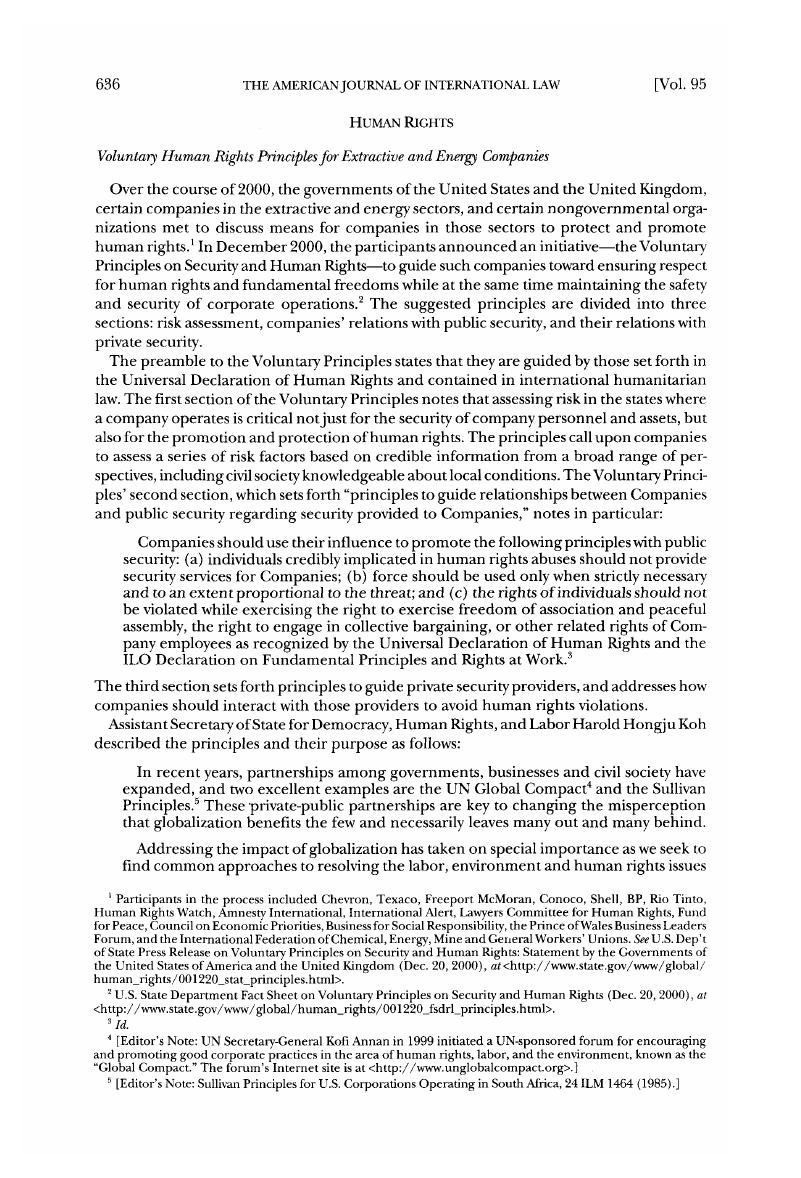No CrossRef data available.
Published online by Cambridge University Press: 06 June 2017

1 Participants in the process included Chevron, Texaco, Freeport McMoran, Conoco, Shell, BP, Rio Tinto, Human Rights Watch, Amnesty International, International Alert, Lawyers Committee for Human Rights, Fund for Peace, Council on Economic Priorities, Business for Social Responsibility, the Prince of Wales Business Leaders Forum, and the International Federation of Chemical, Energy, Mine and General Workers’ Unions. See U.S. Dep’t of State Press Release on Voluntary Principles on Security and Human Rights: Statement by the Governments of the United States of America and the United Kingdom (Dec. 20, 2000), at <http://www.state.gov/www/global/human_rights/001220_stat_principles.html>.
2 U.S. State Department Fact Sheet on Voluntary Principles on Security and Human Rights (Dec. 20, 2000), at <http://www.state.gov/www/global/human_rights/001220_fsdrl_principles.html>.
3 Id.
4 [Editor’s Note: UN Secretary-General Kofi Annan in 1999 initiated a UN-sponsored forum for encouraging and promoting good corporate practices in the area of human rights, labor, and the environment, known as the “Global Compact.” The forum’s Internet site is at <http://www.unglobalcompact.org>.]
5 [Editor’s Note: Sullivan Principles for U.S. Corporations Operating in South Africa, 24 ILM 1464 (1985).]
6 U.S. Dep’t of State Press Release on Harold Hongju Koh, Assistant Secretary of State for Democracy, Human Rights, and Labor; E. Anthony Wayne, Assistant Secretary for Economic and Business Affairs; and David G. Carpenter, Assistant Secretary for Diplomatic Security, Press Briefing on Voluntary Principles on Security and Human Rights (Dec. 20, 2000), at <http://www.state.gov/www/policy_remarks/2000/001220_koh_hr.html>.